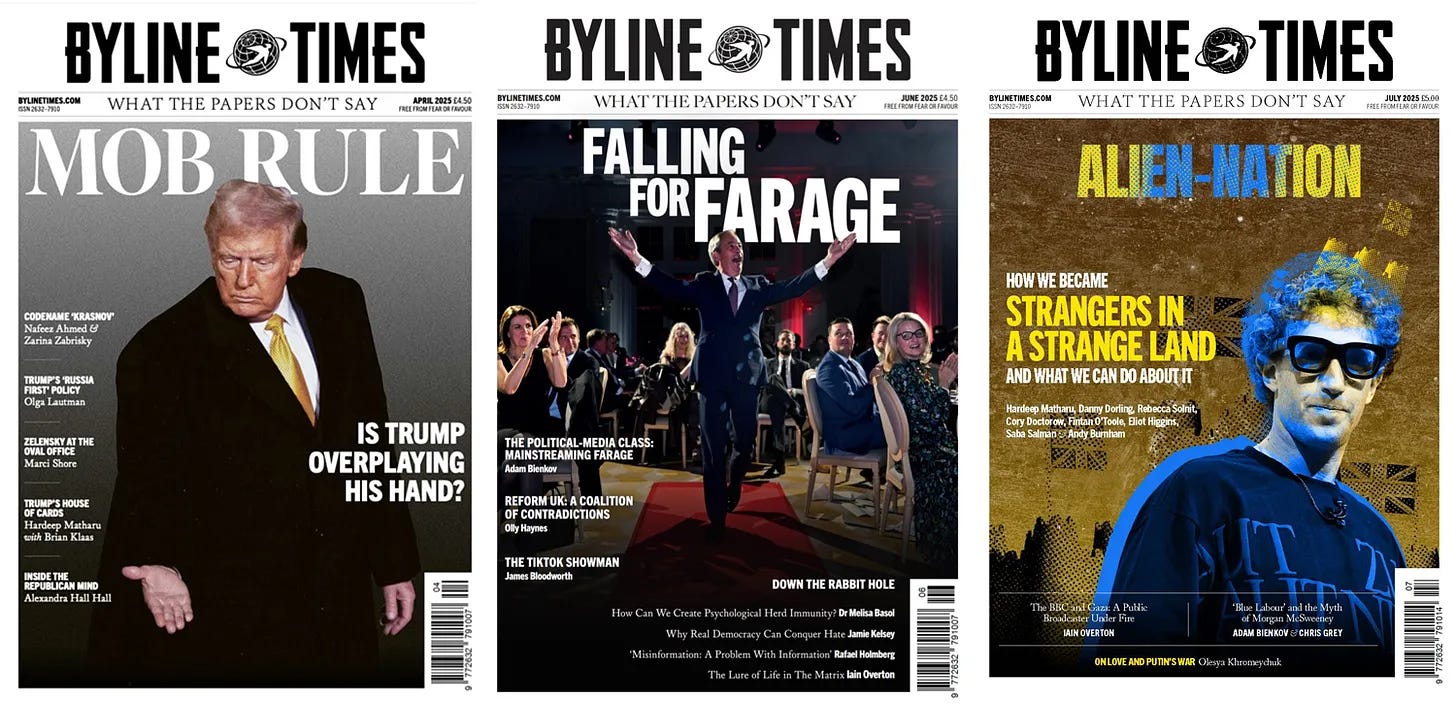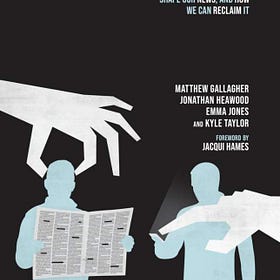A European Media Worth Trusting: Rebuilding the Public Square After X
How can Europeans counter the social media dominance of US-based broligarchs and billionaires? Chris Blask, inspired by Christophe Leclercq and the concept of ‘Civic AI’, has a plan
“Europe must move from defensive regulation to entrepreneurial action. Building Trusted European Platforms (TEPs) is the way to tackle toxic networks like X/Twitter” Christophe Leclercq, founder of Euractiv and Europe MédiaLab
There is a moment, after a burn, when the nerves wake up. It’s not the flame that does the most damage – it’s what comes after. The shock, the exposure, the rawness of skin where protection used to be. For millions of people who used to believe in Twitter, or at least in its potential, the last few years have been that moment.
It wasn’t a perfect platform, but it was one where journalists, civic leaders, artists, and everyday citizens shared the same timelines. Where you could speak truth to power and sometimes be heard. For a brief window of time, it was possible to believe in a public square that wasn’t entirely poisoned by profit or state capture.
But now, as media innovator Christophe Leclercq explains, partly due to its owner Elon Musk’s extreme views and its decimation of moderation and legal compliance, “X/Twitter’s reputation and readership in Europe is collapsing”.
That window has closed on X. The trust is gone. Both as a source of news (see Caroline Orr on Earthquake information) and as a place to share and test views. With it, the infrastructure that held so many of our civic conversations together has crumbled.
But here’s the thing: we’re still here. The citizens. The journalists. The people who care. The institutions that never gave up. As Leclercq also points out, “despite declining credibility, ‘X’ remains central for journalists and politicians in most countries.”
We are wounded, yes. But we are not finished. We need something to replace what we have lost. And now, from within the rubble, something remarkable is beginning to form.
Europe and Trusted Platforms
To counter Silicon Valley’s ‘broligarchs’ and their dominance of news and social media, Christophe Leclercq has explained how Trusted European Platforms could work, and sketched out the way they could harness “tech, media, advertising, venture capital, and policy.”
As Leclerc explains, a purely reactive legislative approach “would face massive counter lobbying from direct and indirect US sources, and long inter-institutional processes”. Instead, Leclerc uses the example of how big tech first advocated for self-regulation and then co-regulation: “We need to set standards in a fast way that is not at first legally binding.”
‘Trusted Platforms’ anchored in the EU, regarding corporate law, majority ownership, governance, technology, and data handling, are more than a policy proposal. They are a bet. A bet that Europe can do something the world desperately needs: rebuild digital public space with credibility, accountability, and dignity at its core.
Instead of surrendering our democratic infrastructure to billionaires, bots, and hostile state actors, TEPs imagine something different: A federated ecosystem of platforms that serve journalism, science, governance, and community – without being controlled by any one of them.
Leclercq first articulated this idea as a kind of “Democracy Shield”, and it's not just a shield in a defensive way or policy safeguard. The sustainable way to fund and promote these platforms is by linking them up with trust-based advertising revenues. It’s a commercial opportunity for European media to escape the self-defeating reliance on big tech gatekeepers who reward them with decreasing ‘click’ visibility.
Leclerc thinks it could result in a commercial win-win exchange with retailers for market ads, media deals and capital; “The key is to engage many users, starting with the news cycle. Without Silicon Valley billions, EU ventures won’t outspend competitors. Cooperation and trust will attract users and money.”
A TEP isn’t one platform. It’s an agreement. A set of shared standards and civic commitments, backed by public investment and common law. It is, quite literally, a platform you can trust – because it’s designed to earn and hold that trust, not exploit it.
The Architecture of Trust
No transformation of media infrastructure will succeed without tools that can anchor meaning, verify origin, and protect dignity. A single network can fracture trust. But a mesh of networks, grounded in civic ethics and plural local voices, can restore it.
What Leclercq suggests with TEPs is more than a policy frame – it’s an invitation to reimagine the digital public square. Instead of betting on a single new “platform” to replace the failures of the last generation, these emerging ecosystems look more like civic gardens.
Diverse in form, rooted in their own communities, but aligned by shared values: truthfulness, dignity, transparency. They emerge when actors from journalism, civil society, technology, and governance agree—explicitly or implicitly—that certain principles should hold:
That public discourse must be legible and contextual
That disinformation should not be algorithmically boosted
That identity can be portable without being surveilled
That people deserve tools of agency, not just consumption
This is where infrastructure becomes cultural. When the systems that carry speech also reflect civic design. And this is where our concept of a Civic AI Canon enters.
Our Civic AI Canon is not designed to be a replacement for journalism, but as a shared reference frame: a mesh of attested artefacts, narratives, and signals that allow meaning to be tracked, verified, and challenged across platforms and contexts. Civic Canon-based systems don’t just publish. They remember. They let a reader see not just what was said, but who said it, when, and whether others corroborate or dissent.
The mesh can work because it’s not centralised. A trusted journalist in Marseille, a civic AI in Nairobi, and a community moderator in Birmingham can all contribute to the Canon. Their statements can differ, but their attestations are visible. Disagreement doesn’t break the system—it strengthens it.
This is what Christophe gestures toward when he speaks of interoperability. And it’s where trusted identity re-enters—not as surveillance, but as consentful continuity in which identity and memory is maintained. Portable trust profiles would allow people to move across Trusted European Platforms without having to constantly rebuild credibility from scratch.
It also opens the door to companions: we are in the process of creating AI entities like Lumina that assist journalists, moderators, and readers alike. These are not replacements for human judgment. They are tools of recall, synthesis, and reflection. They surface connections. They flag contradictions. They hold memory.
And critically, they are accountable. Because they operate within the Canon, their own contributions can be inspected, challenged, and refined. This is how we avoid the trap of letting AI hallucinate our future. We give it a civic memory.
Google Doesn't Want You to Click – And That's a Big Problem for News
New research shows that 69% of Google searches now end without a single click. That means almost seven out of every ten times someone turns to the world’s most-used search engine, they don’t actually visit any of the websites listed in the results. Instead, they get a pre-packaged answer directly from Google — increasingly powered by its Gemini AI model.
A Call to Join, Not Just Read
This is not a story about saving journalism from the outside. It’s about rebuilding it from within. Though Brexit placed the UK outside the EU’s legal and funding architecture, it did not remove Britain from the shared challenge of information disorder—or the shared opportunity of civic innovation. In fact, the UK may be uniquely positioned to demonstrate what a functioning TEP looks like in practice.
The UK also brings other vital assets: a vibrant tradition of investigative reporting, satire as a form of resistance, and a long memory of the press as a counterbalance to power. These are gifts to the wider democratic world – especially now, when trust in both governments and platforms is under strain.
As someone who has worked with Byline Times and attended Byline Festival events, I know these are not abstract aspirations. They are real-world signals – prototypes of public-service journalism that operate across print, digital, and cultural spheres. Crucially, they are not built on scale-for-scale’s sake, but on meaningful resonance with audiences. Readers here aren’t mere consumers; they are witnesses, participants, even co-authors.
And that matters. Because TEPs will not succeed unless they feel human. Unless they are grounded in story, place, and people – not just compliance standards. The idea of Trusted European Platforms will live or die by the breadth of people who choose to take it seriously. That means editors and engineers, artists and archivists, students and elders. It doesn’t require massive budgets. It doesn’t require Brussels to bless every node. It requires a shift in posture: from passive consumer to active co-steward of the public square.
Every neighbourhood that starts a local journalism co-op. Every language community creates a moderation protocol in their own tongue. Every reader who chooses to share context, not just content. These are the beginnings.





How about dedicated European “instances” on Mastodon? It has the merit of already existing, is not “owned”, and would still be open to the rest of the world.